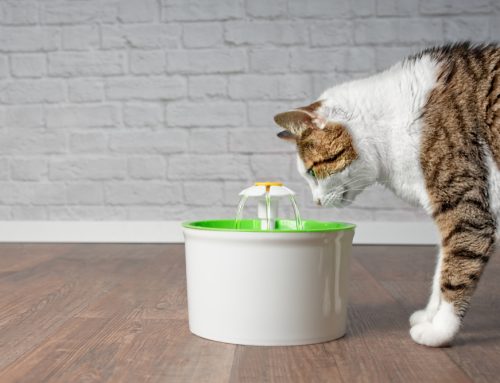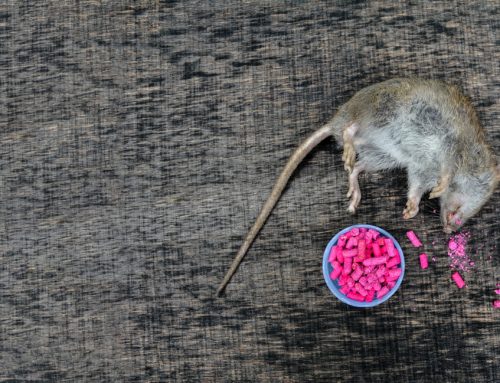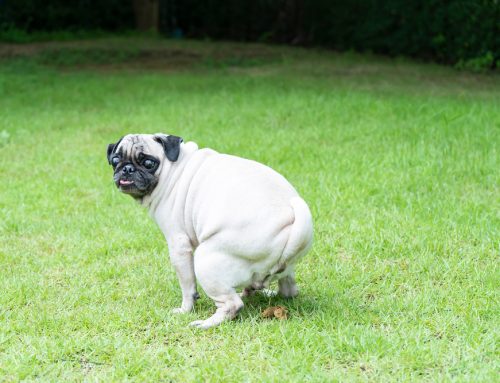Many items you commonly eat or use around your house, garage, and yard are toxic to pets, and if your pet is poisoned, they can suffer serious, potentially life-threatening consequences. Our Madison Street Animal Hospital team wants to help ensure your pet avoids toxin exposure, and we offer a pet toxin crash course to teach you about this concerning topic.
Common pet toxins
Many foods and products around your home, garage, and yard can poison your pet. Protect your pet from these potential pet toxins:
- People foods — Pets can’t process many common people foods such as alcohol, caffeine, chocolate, onions and garlic, grapes and raisins, products containing the sugar substitute xylitol, and raw yeast dough.
- Medications intended for people — You should never give your pet over-the-counter (OTC), prescription, or recreational medications such as ibuprofen, naproxen, acetaminophen, antidepressants, attention deficit hyperactivity disorder (ADHD) or blood pressure drugs, cold remedies, diet pills, marijuana, or vitamins.
- Plants — Many indoor and outdoor plants are toxic to pets, including aloe, azalea, chrysanthemums, foxglove, lily, mistletoe, oleander, sago palm, and tulip.
- Household chemicals — Ensure your pet can’t access household products such as antifreeze, bleach and detergents, deicing salts, foam insulation, fertilizers and herbicides, drain and shower cleaners, insecticides, batteries, paint, paint thinner, pool chemicals, and rodenticides.
- Medications intended for pets — If you administer your pet’s medications inappropriately, or they ingest too much on their own, they can have a life-threatening reaction. Follow these pet medication safety tips:
-
- Prevent your pet from accessing their medication and eating a large quantity.
- Prevent one pet from eating another’s medications.
- Prevent your cat from eating your dog’s medication, and vice versa.
Pet toxin signs
Pets can be sneaky, ingesting foods, chemicals, and medications they shouldn’t. You may not witness your pet ingest a toxin, but you should be suspicious if they exhibit the following toxin ingestion signs:
- Gastrointestinal (GI) upset — Toxin exposure commonly results in signs such as inappetence, vomiting, and diarrhea.
- Drooling — Excessive drooling may indicate your pet is feeling nauseated after ingesting a toxin.
- Respiratory difficulty — Certain toxins can result in coughing, choking, and labored breathing.
- Dilated pupils — Some toxins, including certain plants, herbicides, and insecticides, can cause your pet to have dilated pupils.
- Blindness — Toxins such as ivermectin, enrofloxacin, and ethylene glycol can damage your pet’s retinas, causing blindness.
- Incoordination — Toxin exposure can interfere with your pet’s ability to walk, making them behave drunkenly.
- Muscle tremors and seizures — Numerous toxins, including xylitol (i.e., a sugar substitute), caffeine, and amphetamines, can cause muscle tremors and seizures.
Pet toxin first aid
If you see your pet ingest a toxin, you can call your veterinarian before your pet shows toxicity signs. However, you may only observe your pet’s signs, and not know what poison they accessed. No matter, to ensure your pet gets the veterinary treatment they need, follow these steps:
- Don’t panic — Stay calm so you can ensure your pet gets the care they need.
- Call for help — Immediately call Madison Street Animal Hospital or the Pet Poison Helpline to get advice on how to care for your pet properly.
- Remove the toxin — Remove any remaining poison from your pet’s access.
- Keep the label — Save the toxin’s label so you can provide product information to our Madison Street Animal Hospital team.
- Collect a sample — If your pet is vomiting, collect a sample for our team to test.
- Be prepared — Be prepared to answer questions about:
- Your pet’s age, breed, and weight
- Your pet’s known medical history, including medications and supplements they are currently taking, and any health conditions
- What toxin your pet ate, when they ate the poison, and how much they ingested
- Don’t use home cures — Don’t give your pet home cures, such as milk, peanut butter, vegetable oil, or salt. These products won’t neutralize a toxin, and these foods can harm your pet.
- Don’t induce vomiting — Unless the poison control helpline or our veterinary team instructs you to do so, don’t induce vomiting.
Pet toxin prevention

Pet toxins are everywhere in and around your home. To help decrease your pet’s toxin exposure risk, follow these safety tips:
- Keep counters clean — To prevent counter surfing, keep unattended foods off your kitchen counter.
- Read the label — Before feeding your pet a new product, read the label to ensure the ingredients are pet-friendly.
- Store garbage in sealed containers — To prevent dumpster diving, store all garbage in sealed containers.
- Inform your guests — Ensure your guests know that your pet isn’t allowed to eat human foods.
- Ensure your plants are pet-friendly — Ensure plants in and around your home are safe for your pet.
- Secure all medications — Store all medications—whether intended for people or for pets—out of your furry pal’s reach, keeping them on a high shelf in a secure cabinet.
- Close the door — To prevent your pet from eating a dropped pill, while you take your medications, ensure your pet is not nearby, and close the door to keep them out.
- Secure coats and handbags — Many people keep medications, such as ibuprofen and acetaminophen, and sugar-free gums or mints, in their coat pockets and handbags. Secure all personal items out of your pet’s reach.
- Use child safety locks — Use child safety locks to secure cleaning and laundry supplies, and household chemicals.
- Wipe your pet’s paws — After going outside on a winter day, wipe your pet’s paws to remove deicing agents.
- Clean spills — To prevent your pet from lapping up or touching a toxin, immediately wipe up chemical (e.g., ethylene glycol) spills.
- Restrict access — If you must use a rodenticide or other harmful product, ensure your pet can’t access the room, garage, or yard area where the toxin has been spread.
- Keep your pet inside — When treating your lawn with weed killer or insecticides, keep your pet inside.
By following these steps, you help reduce your pet’s toxin exposure risk. However, accidents do occur. If you know or suspect your pet ingested a toxin, immediately contact our Madison Street Animal Hospital team.




















Leave A Comment